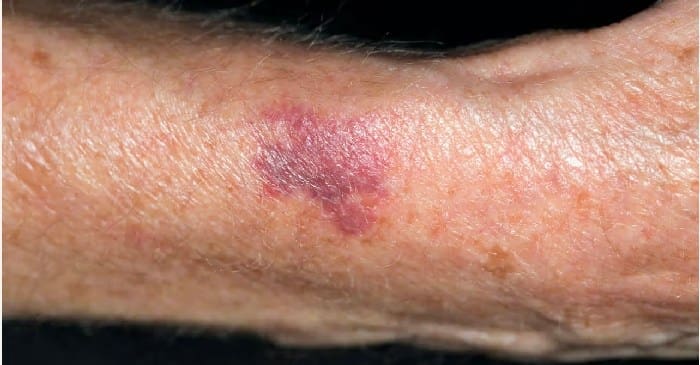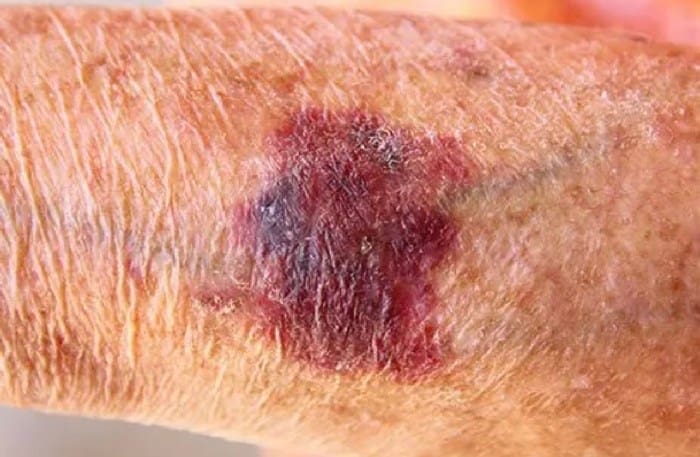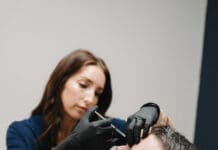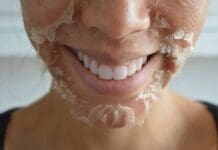By Bridget Sullivan, PA-C, Coastal Skin Cancer Surgery and Dermatology
Actinic Purpura, also known as bruising, is a common skin condition seen in older adults that causes red or purple patches on the skin, typically on sun-exposed areas – arms and hands. These red and purple patches are caused by fragile blood vessels that rupture beneath the skin and from skin being thin. These patches are harmless, though unsightly, and will fade between one to four weeks.

There are certain medications that can make a person more susceptible to bruising easily. These include, but are not limited to, blood thinners, aspirin, and fish oil supplements. Also, there are certain medical conditions, blood disorders and nutritional deficiencies that can contribute to bruising, so it is important to get your annual blood work from your Primary Care Provider in order to rule these out. In addition, sun damage over the years is a large contributor to our skin thinning, making it more susceptible to bruising. Make sure you wear your sunscreen and sun protective clothing to ensure that you don’t contribute to more sun damage and skin fragility.

Treatments for bruising that I recommend to my patients are over-the-counter Dermend Anti Bruise cream, two times daily. This cream has great ingredients that I have found help fade bruising quickly. Also, arnica supplements and topical cream have been proven to help with bruising and inflammation.

I hope this article has helped relieve anxiety about the unsightly condition of Actinic Purpura and can ease your mind knowing it is not harmful, the common contributing factors and some easy and effective over-the-counter solutions. As always, please contact your dermatology medical provider if you have any questions or concerns regarding your skin conditions.





















































